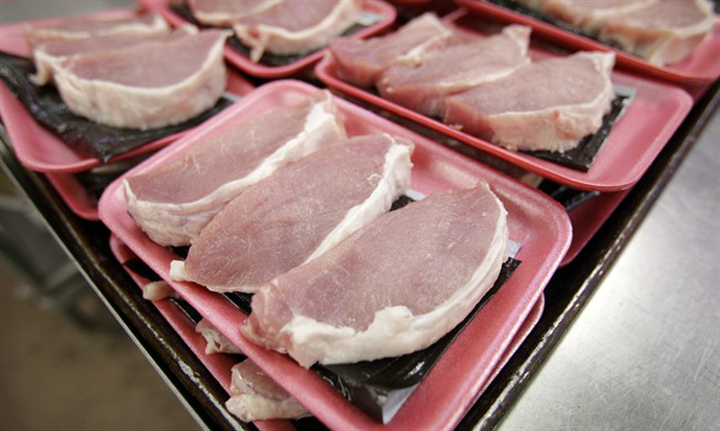WINNIPEG – The union representing Canada’s meat inspectors says slaughter facilities in Manitoba are severely understaffed and public safety is at risk.

Bob Kingston, president of the Public Service Alliance of Canada’s agriculture union, says slaughterhouses in the province typically operate with one-third fewer inspectors than required by the Canadian Food Inspection Agency.
READ MORE: Food safety: Are food-borne illnesses, recalls on the rise in Canada?
That will be exacerbated by the federal government’s decision to cut $35 million from the agency’s budget, which will mean 273 fewer inspectors across Canada by 2018, he says.
“Canadians do not trust the food industry to police its own safety practices, yet the government is relying more heavily on food-production companies to self-police,” Kingston said Thursday at a Winnipeg news conference, one of several the union has held across the country recently.
“Without action to address the inspection shortage, it is just a matter of time before the next major food-borne illness outbreak occurs.”

Get weekly health news
READ MORE: Tainted lunch: Navigating gaps in Canada’s food safety system
Tainted cold cuts from a Maple Leaf plant in Toronto led to an outbreak of listeriosis that killed 22 people across the country in 2008.
Three years ago, meat tainted by the E. coli bacteria prompted the XL Foods meat-packing plant in southern Alberta to recall 1.8 million kilograms of beef in Canada and the United States. No one died, but health officials confirmed that 18 people tested positive for the bacteria linked to the meat.
Kingston said the current shortage of federal meat inspectors is so acute, that Manitoba’s plants are borrowing provincial inspectors to fill in the gaps.
READ MORE: Food Inspection Agency says better transparency’s coming – eventually
“They can be pulled from those facilities without a lot of screaming and yelling so they can get away with it,” he said. “Because inspectors working in Manitoba’s federally licensed processing- and cold-storage facilities barely meet minimum staffing levels, this is like robbing the poor to pay the destitute.”
A spokesperson for the Canadian Food Inspection Agency was not immediately available for comment.
A spokesman for Health Minister Rona Ambrose has previously said 200 frontline food safety inspectors are to be hired and the government has provided the agency with the highest funding levels in Canadian history.
READ MORE: Who do Canadians trust with their food? Local growers get top marks, new poll finds
Chris Aylward, vice-president of the Public Service Alliance of Canada, urged voters to consider food safety when casting a ballot in the upcoming federal election.
“It can’t be much worse than what it is today,” Aylward said. “For those voters who expect more than what the federal government is delivering on food safety, now is the perfect time to voice your concerns prior to the Oct. 19 election.”







Comments